
The Enchanting Kerala Backwaters
The Kerala Backwaters are a network of serene lakes, canals, and rivers that stretch along the Malabar Coast in southern India. This unique ecosystem is renowned for its stunning natural beauty, lush greenery, and tranquil waters. Touring the backwaters often involves cruising on traditional houseboats, known as 'kettuvallams', which provide an intimate way to experience the local culture and wildlife. Exploring the backwaters offers a glimpse into the daily lives of local communities who rely on these waterways for transportation, fishing, and agriculture. The region is dotted with charming villages, ancient temples, and vibrant paddy fields. Birdwatchers will delight in the diverse avian species that inhabit the area, including kingfishers, herons, and cormorants. The backwaters of Kerala are also famous for their rich culinary heritage. Freshly caught seafood, coconut-infused dishes, and traditional Kerala spices create a tantalizing array of flavors for visitors to savor. As you drift along the calm waters, the serene environment and gentle sway of the boat provide a perfect setting for relaxation and reflection.
Local tips in Kerala Backwaters
- Best time to visit is from November to February when the weather is cool and pleasant.
- Book houseboat cruises in advance, especially during peak tourist season.
- Carry insect repellent to protect against mosquitoes, especially during the evening.
- Try local dishes like Karimeen Pollichathu (pearl spot fish) and Appam with Stew.
- Hire a local guide for birdwatching tours to spot a variety of bird species.
The Enchanting Kerala Backwaters
The Kerala Backwaters are a network of serene lakes, canals, and rivers that stretch along the Malabar Coast in southern India. This unique ecosystem is renowned for its stunning natural beauty, lush greenery, and tranquil waters. Touring the backwaters often involves cruising on traditional houseboats, known as 'kettuvallams', which provide an intimate way to experience the local culture and wildlife. Exploring the backwaters offers a glimpse into the daily lives of local communities who rely on these waterways for transportation, fishing, and agriculture. The region is dotted with charming villages, ancient temples, and vibrant paddy fields. Birdwatchers will delight in the diverse avian species that inhabit the area, including kingfishers, herons, and cormorants. The backwaters of Kerala are also famous for their rich culinary heritage. Freshly caught seafood, coconut-infused dishes, and traditional Kerala spices create a tantalizing array of flavors for visitors to savor. As you drift along the calm waters, the serene environment and gentle sway of the boat provide a perfect setting for relaxation and reflection.
When is the best time to go to Kerala Backwaters?
Iconic landmarks you can’t miss
Illikkal Kallu
Explore the breathtaking vistas and thrilling hikes at Illikkal Kallu, a stunning hill station in Kerala that offers a unique wildlife experience.
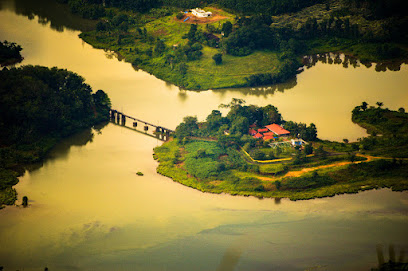
Aspinwall House
Discover the enchanting blend of art, history, and culture at Aspinwall House in Fort Kochi, a must-visit destination for every traveler.
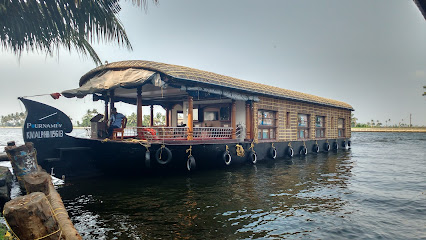
Kumarakom Bird Sanctuary
Discover the stunning biodiversity of Kumarakom Bird Sanctuary, a premier birdwatching destination in Kerala's serene backwaters.
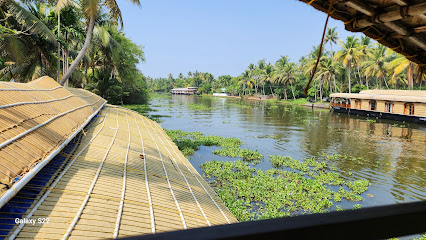
Alappuzha Light House
Experience the stunning views and rich maritime history at Alappuzha Light House, a must-visit landmark in Kerala's enchanting coastal region.
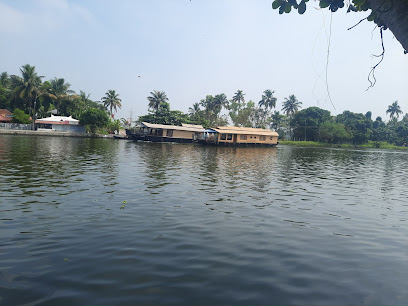
Kochi Beach
Discover the charm of Kochi Beach in Fort Kochi, where stunning sunsets, cultural heritage, and local markets await every traveler.
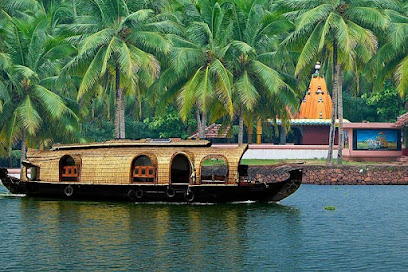
Marmala Waterfalls
Experience the breathtaking beauty of Marmala Waterfalls, a stunning natural wonder in Kerala perfect for hiking and nature lovers.
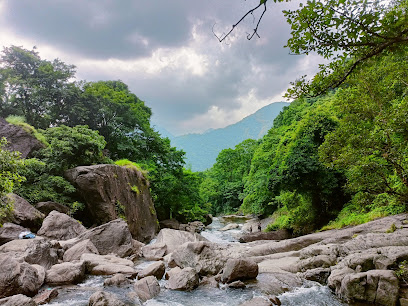
Kadamakudy Lake View Point
Discover the tranquility of Kadamakudy Lake View Point, a scenic escape in Kochi, Kerala, where nature and adventure await.
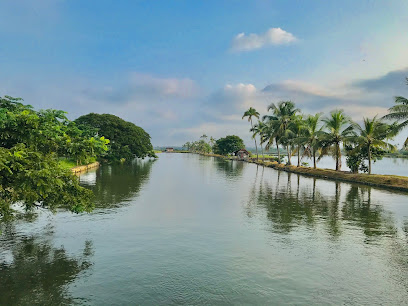
Poovar Backwater Cruise
Discover the enchanting beauty of Kerala's backwaters with a serene cruise through Poovar's lush landscapes and vibrant local culture, perfect for nature lovers.
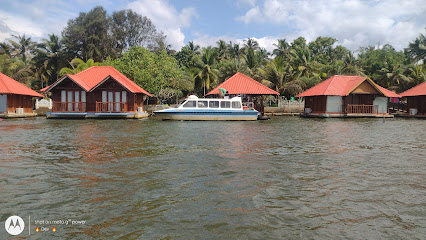
Kochareekkal Caves
Explore the breathtaking Kochareekkal Caves in Ernakulam, Kerala, where nature's beauty meets geological wonder in a tranquil setting.
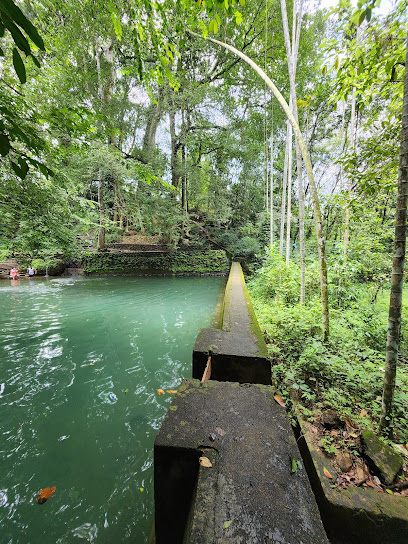
Nadukani Pavilion
Immerse yourself in the breathtaking beauty of Nadukani Pavilion, a serene escape in the heart of Kerala, perfect for nature lovers and peace seekers.
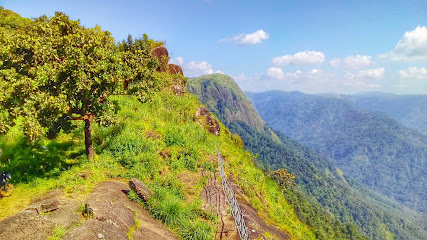
Kochi Backwaters
Explore the serene beauty of the Kochi Backwaters, a unique network of lagoons and canals in Kerala, perfect for adventure and relaxation.
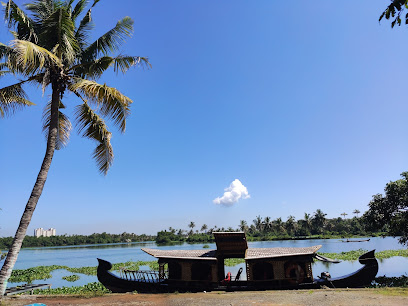
Alleppey Backwaters
Experience the enchanting beauty of Alleppey Backwaters in Kerala, where tranquility meets adventure amidst stunning landscapes and rich culture.
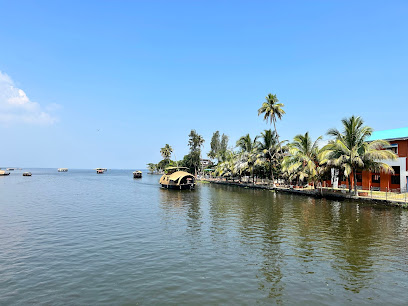
Kadambrayar Tourism
Explore the natural beauty and rich culture of Kadambrayar Tourism in Kerala, a captivating destination perfect for every traveler.
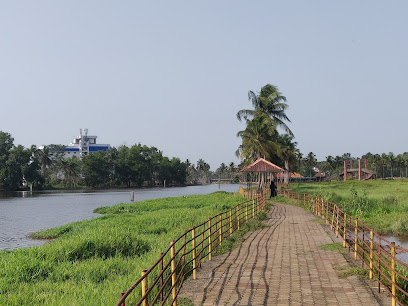
Kadamakkudy Islands View Point
Experience the breathtaking beauty of Kadamakkudy Islands View Point, where Kerala's enchanting backwaters meet serene landscapes and rich local culture.
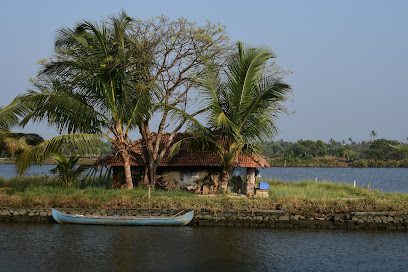
Nadukani View Point, Kayyoor
Discover Nadukani View Point in Kerala – a breathtaking vantage point offering stunning landscapes and serene experiences in the heart of nature.
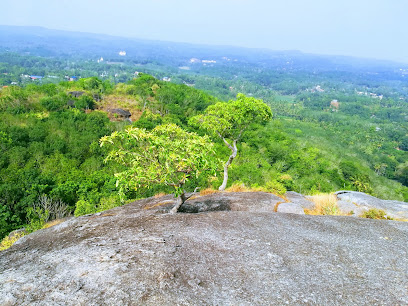
Unmissable attractions to see
Alleppey Beach
Experience the breathtaking beauty of Alleppey Beach, where golden sands meet azure waters, perfect for relaxation and adventure in Kerala.
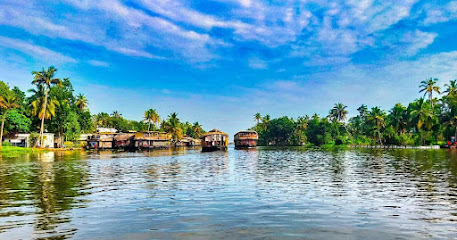
Illikkal Kallu
Discover the breathtaking heights of Illikkal Kallu, a stunning hill station in Kerala, offering exhilarating hikes and captivating views of nature.
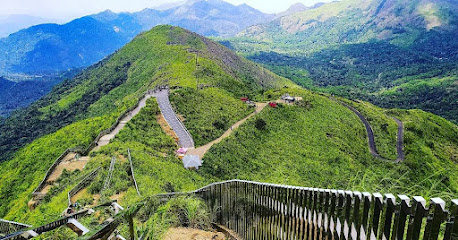
Kundala Dam
Experience the tranquil beauty of Kundala Dam in Munnar, Kerala, where nature meets serenity in a picturesque setting.
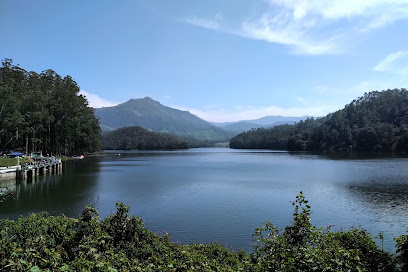
Kadamakudy Lake View Point
Discover the serene beauty of Kadamakudy Lake View Point, a perfect blend of nature's tranquility and Kerala's scenic charm.
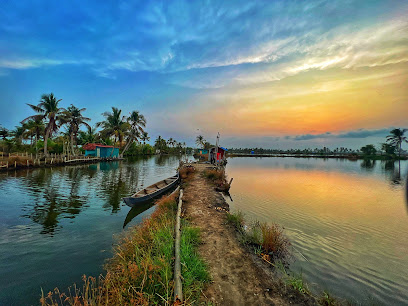
Chimmini Wildlife Sanctuary
Explore the breathtaking Chimmini Wildlife Sanctuary, a serene haven for wildlife enthusiasts and nature lovers in Kerala, India.
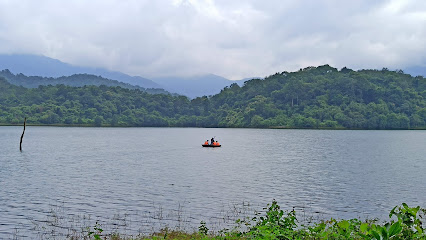
Poovar Backwater Cruise
Explore the breathtaking Poovar Backwater Cruise, where tranquility meets nature in Kerala's stunning waterways.
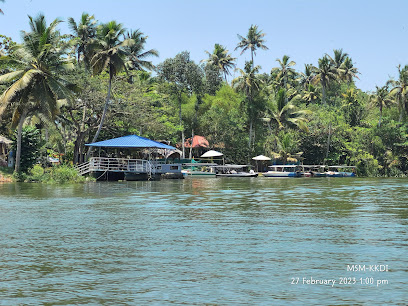
Kochareekkal Caves
Explore the mystical Kochareekkal Caves in Ernakulam, Kerala, where nature's beauty meets geological wonder.
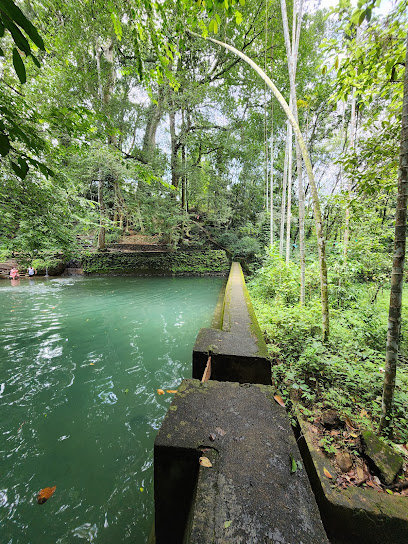
Nadukani Pavilion
Explore the breathtaking beauty of Nadukani Pavilion, a serene tourist attraction in Kerala with stunning views of the Malankara Reservoir and lush landscapes.
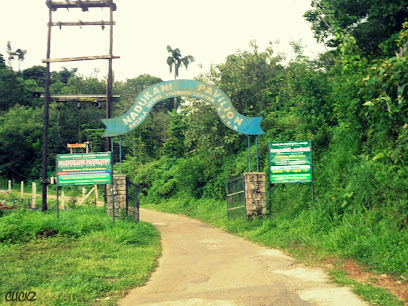
Aqua Tourism by Matsyafed
Explore the enchanting backwaters of Kerala at Aqua Tourism by Matsyafed, where adventure and relaxation blend in a serene aquatic haven.
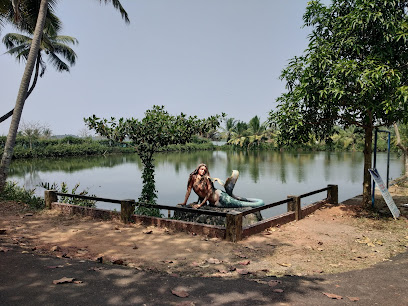
Thottappally Beach Alleppey
Discover the enchanting Thottappally Beach in Kerala, where the Arabian Sea meets serene backwaters, perfect for relaxation and adventure.
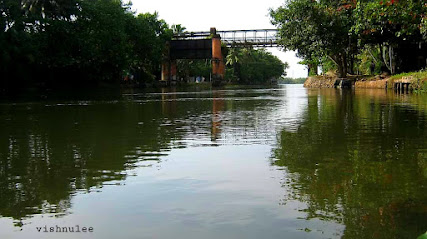
Kadambrayar Tourism
Explore the serene landscapes and vibrant culture of Kadambrayar Tourism, a perfect getaway in the heart of Kerala's natural beauty.
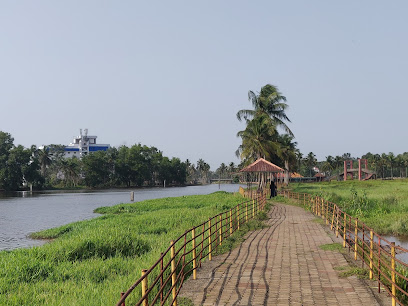
Kadamakkudy Islands View Point
Discover the serene beauty of Kadamakkudy Islands View Point in Kochi, Kerala, a perfect escape into nature's tranquility and stunning landscapes.
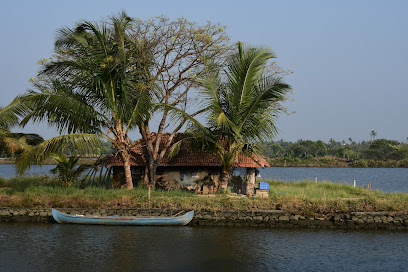
Ulavaipu View Point
Experience the breathtaking views at Ulavaipu View Point, a serene tourist attraction in Kerala, perfect for nature lovers and photographers seeking tranquility.
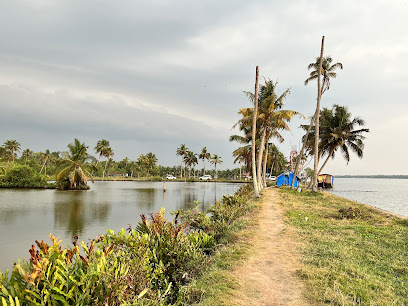
Nadukani View Point, Kayyoor
Discover the breathtaking landscapes and serene backwaters at Nadukani View Point in Kerala, a must-visit for nature lovers and photography enthusiasts.
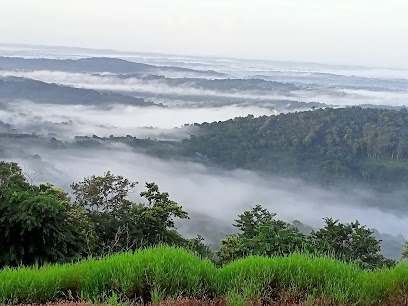
Pentagon Lighthouse , Valiyazheekkal
Explore the Pentagon Lighthouse in Valiyazheekkal for breathtaking views and a glimpse into Kerala's maritime heritage.
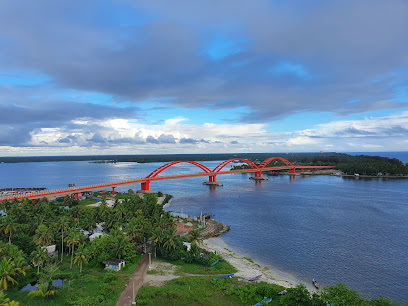
Essential places to dine
Swargam
Discover the flavors of Kerala at Swargam Cafe - where tradition meets taste in a picturesque setting.
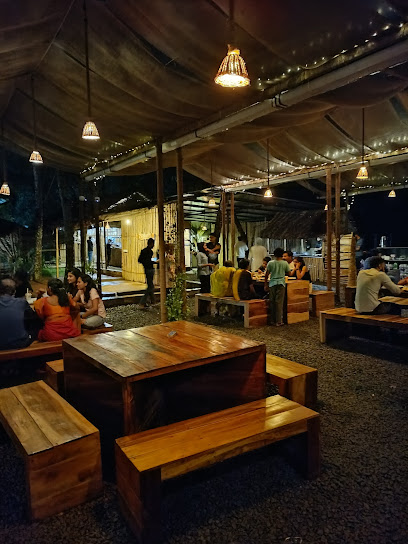
Vasundhara Sarovar Premiere
Discover tranquility at Vasundhara Sarovar Premiere: A luxurious resort hotel nestled in the breathtaking backwaters of Kerala.
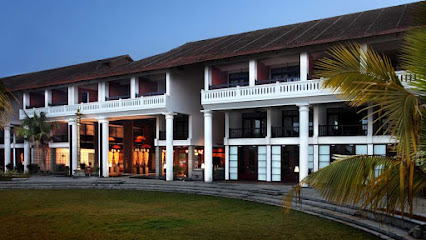
Indian Coffee House
Experience the rich flavors of South India at Indian Coffee House in Alappuzha – where tradition meets taste.
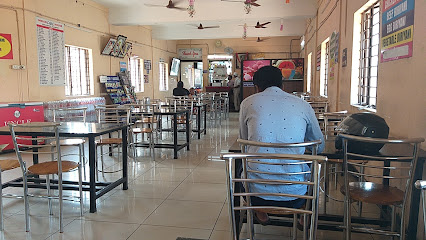
KFC
Savor delicious fried chicken and fast food delights at KFC Pulinchoode - the ultimate dining spot in Kochi's culinary scene.
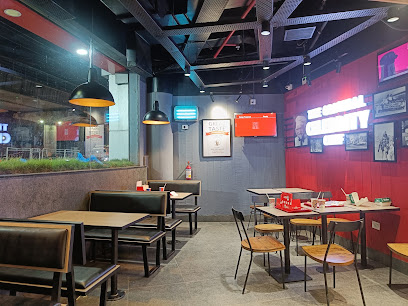
Karma Waterside Restaurant
Experience exquisite dining at Karma Waterside Restaurant in Kumarakom, where culinary excellence meets breathtaking backwater views.
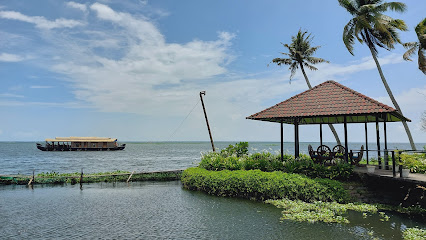
Lemon Tree Vembanad Lake Resort, Kerala
Experience luxury amidst nature at Lemon Tree Vembanad Lake Resort - your gateway to Kerala's serene backwaters.

Lucka'S Open Restaurant
Experience authentic Kerala cuisine at Lucka's Open Restaurant with stunning backwater views and a warm atmosphere.
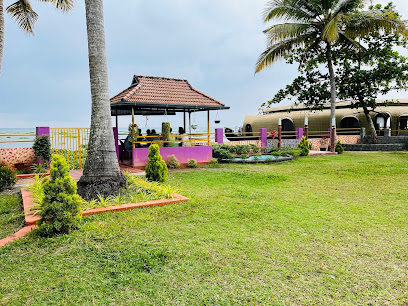
Chaalu Backwaters
Experience authentic Kerala seafood at Chaalu Backwaters amidst stunning backwater views for an unforgettable dining experience.
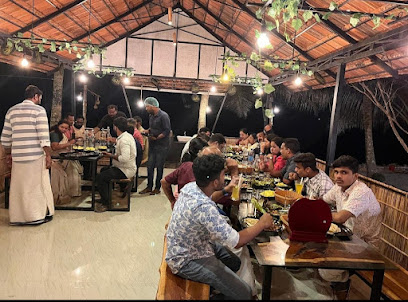
Thengumthoppu - Keerikkuzhi Toddy Parlour
Experience authentic Kerala cuisine and traditional toddy at Thengumthoppu - Keerikkuzhi Toddy Parlour amidst Kumarakom's stunning backwaters.
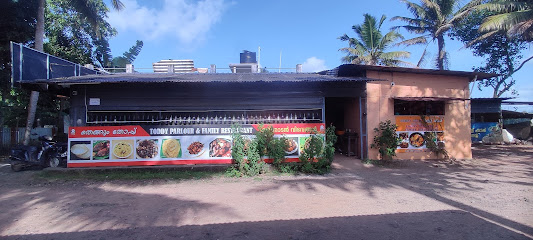
Pearlspot Restaurant
Discover delightful flavors at Pearlspot Restaurant in Kumarakom—where family-friendly dining meets stunning backwater views.
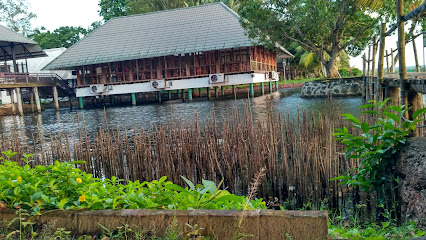
Cheenavala Backwater Cafe
Discover authentic Keralan flavors at Cheenavala Backwater Cafe amidst Kochi's stunning backwaters.
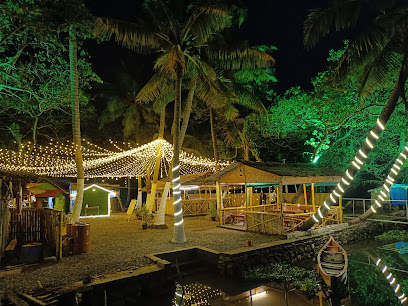
Backwater cafe
Discover authentic Kerala flavors at Backwater Cafe, where every meal is a journey through local culinary traditions amidst stunning natural beauty.
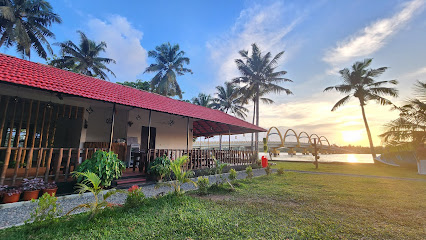
Barbeque Bay by Club Mahindra, Munnar
Discover mouthwatering barbecue delicacies amidst breathtaking views at Barbeque Bay by Club Mahindra in Munnar.
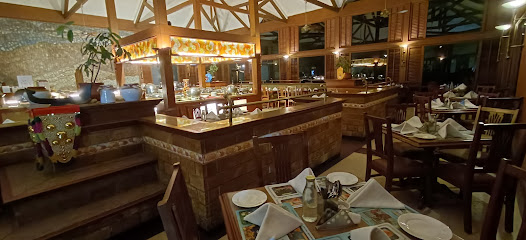
The Backwaters
Experience Kerala's culinary delights at The Backwaters, where tranquil waters meet exquisite flavors in Kochi.
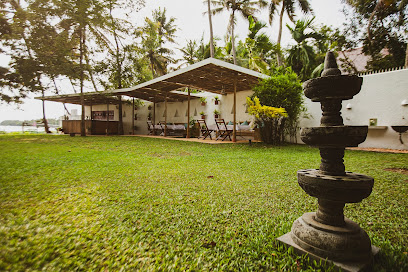
Backwater Cafe ಬ್ಯಾಕ್ ವಾಟರ್ ಕೆಫೆ
Experience exquisite dining at Backwater Cafe near Kappil Beach; indulge in diverse cuisines surrounded by stunning Kerala backwaters.
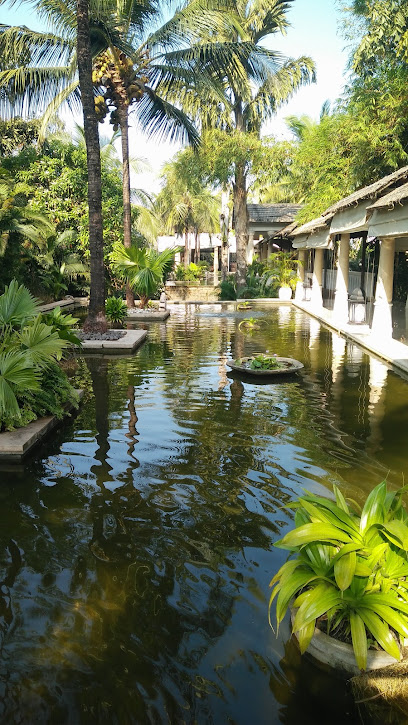
Markets, malls and hidden boutiques
Oscar Cruise
Discover the captivating backwaters of Alappuzha with Oscar Cruise, where adventure meets serenity in Kerala's stunning landscapes.
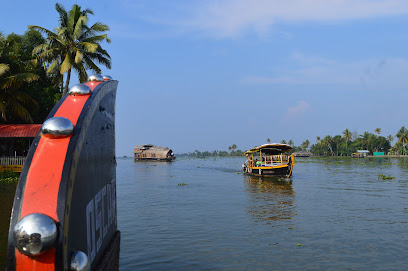
MARINE DRIVE SHOPPING CENTRE
Explore the Marine Drive Shopping Centre, a vibrant hub of shopping and dining with stunning waterfront views in Ernakulam, Kerala.
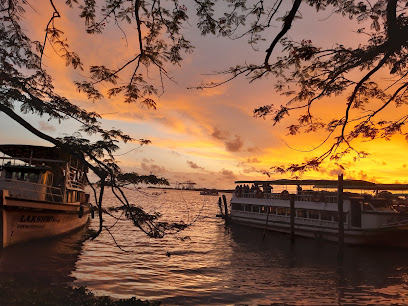
Poovar Backwater Cruise
Explore the tranquil beauty of Kerala's backwaters with a serene Poovar Backwater Cruise, immersing yourself in nature's vibrant ecosystem.
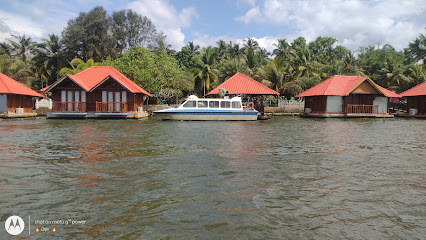
Nadodi Kayaking in Alleppey
Discover the serene beauty of Kerala's backwaters with Nadodi Kayaking - an adventure in nature and culture.
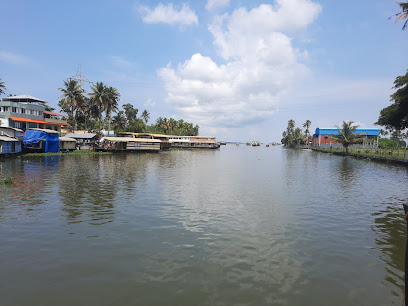
Rajapuram Kayal Shaap (Toddy parlour)
Experience the authentic flavors of Kerala at Rajapuram Kayal Shaap, a charming toddy parlour nestled in the breathtaking backwaters.
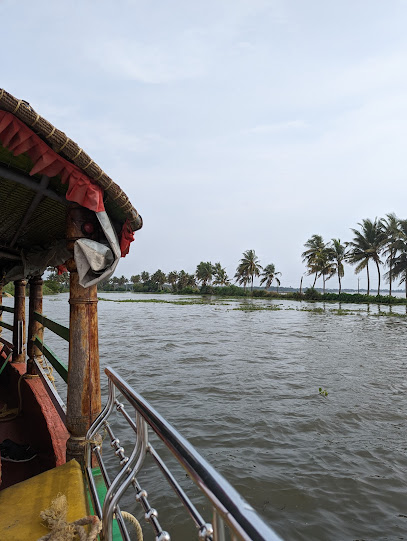
Marina Mall
Discover Marina Mall: A premier shopping destination in Kochi offering diverse retail, dining, and stunning backwater views.
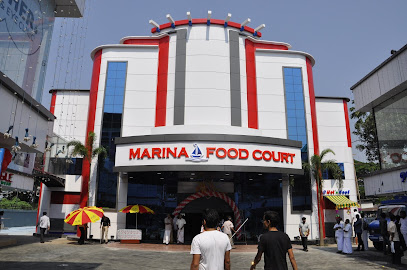
The World Backwaters, Alleppey
Immerse yourself in the serene beauty of The World Backwaters in Alleppey, a perfect resort getaway in Kerala's picturesque landscape.
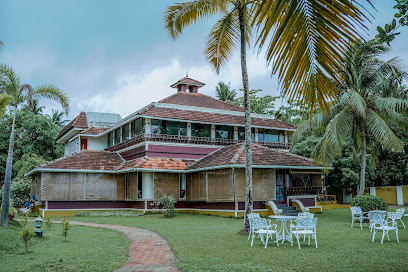
Kasavu Aalayam Handlooms
Discover the rich textile heritage of Kerala at Kasavu Aalayam Handlooms, where traditional craftsmanship meets modern elegance.
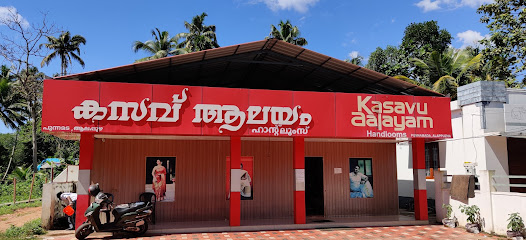
Alleppey Houseboats | Alleppey Boat House - Waves and Dales Alleppey Houseboat
Discover the peaceful backwaters of Alleppey on a traditional houseboat cruise, blending luxury with serene natural beauty.
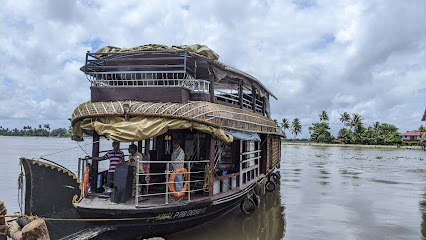
Alleppey Backwaters
Experience the serene beauty and vibrant culture of Alleppey Backwaters, a stunning destination for unforgettable boat tours and local culinary delights.
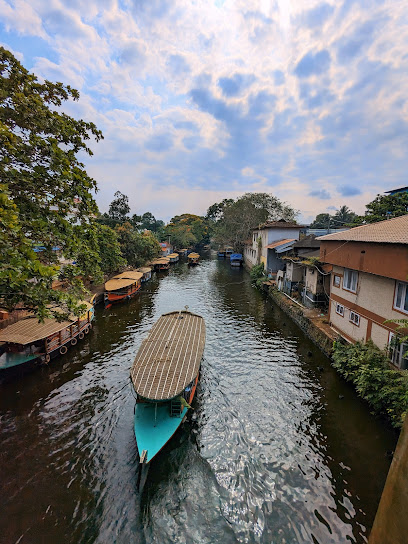
Pepper House
Explore the artistic essence of Fort Kochi at Pepper House, a unique boutique featuring designer clothing and exquisite jewelry.
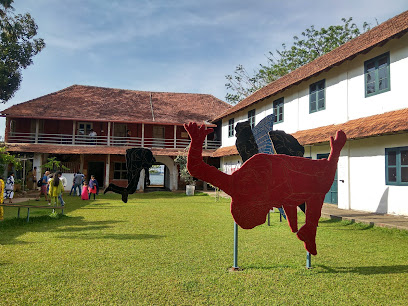
The Great Backwaters
Discover the beauty of Kerala’s Great Backwaters, a serene nature preserve perfect for relaxation and cultural immersion amidst stunning landscapes.
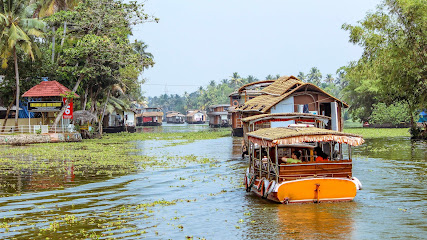
Leleela - A Kumarakom Backwater Boutique Resort.
Discover the ultimate retreat at Leleela, a boutique resort in Kumarakom's breathtaking backwaters, blending luxury with nature's tranquility.
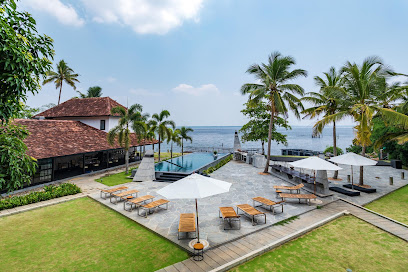
Back Water Aquatics Kochi - Aquascaping and Aquarium Shop
Explore exotic fish and stunning aquascapes at Back Water Aquatics Kochi - your ultimate aquarium shop and pet store experience.
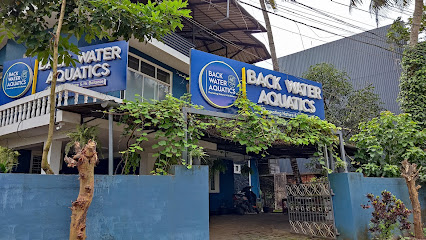
KADAMAKUDY BACKWATERS. & PUZHAYORAM FOOD COURT AND BOATING
Discover the enchanting Kadamakudy Backwaters, where stunning scenery meets authentic Kerala cuisine at Puzhayoram Food Court.
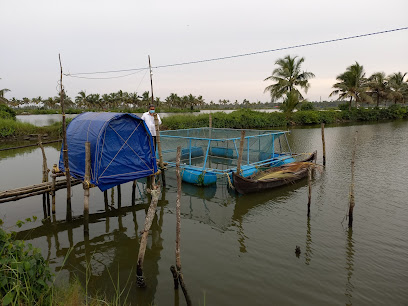
Essential bars & hidden hideouts
Swargam
Experience the taste of Kerala at Swargam, a vibrant café by the backwaters in Ernakulam, offering authentic cuisine and stunning views.
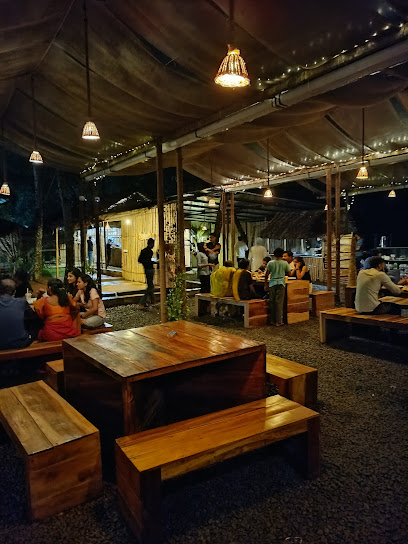
Hotel Seagull
Discover the charm of Fort Kochi at Hotel Seagull, where comfort meets culture in a picturesque setting.
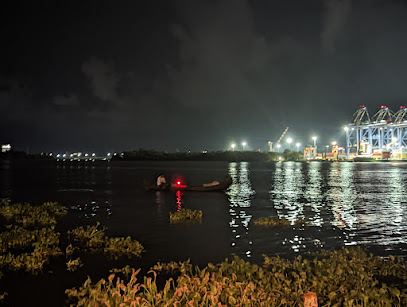
Contour Backwaters Hotel Resort & Convention Centre
Experience luxury and tranquility at the Contour Backwaters Hotel Resort & Convention Centre, a perfect Kerala getaway amidst stunning backwater views.
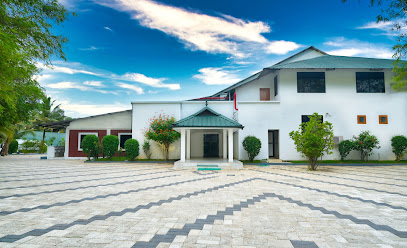
Cafe Catamaran
Experience the best of Kerala's flavors at Cafe Catamaran, a charming cafe with stunning waterfront views and a diverse menu.
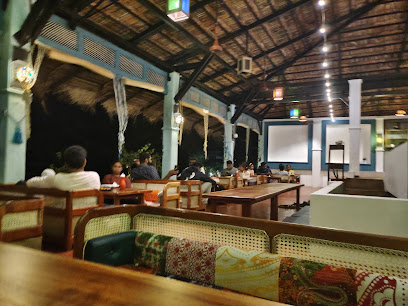
VELOCITY KOCHI
Discover the vibrant nightlife and delectable cuisine at Velocity Kochi, a must-visit bar and restaurant in Kerala's Ernakulam.
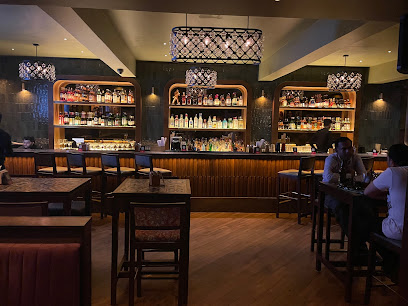
Karma Waterside Restaurant
Discover exquisite dining at Karma Waterside Restaurant in Kumarakom, offering breathtaking views of the backwaters and a taste of local culinary delights.
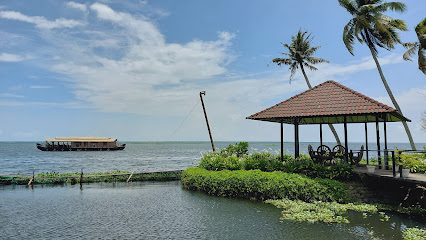
SkyGrill Fusion Tapas & Lounge
Experience exquisite fusion cuisine with breathtaking views at SkyGrill Fusion Tapas & Lounge in Ernakulam, Kerala.
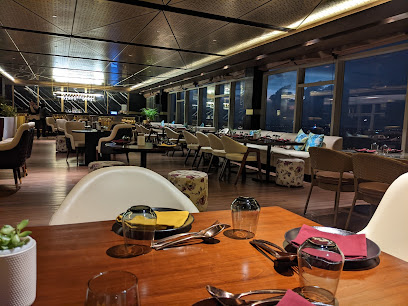
The Sky Bar
Experience stunning sunset views and exquisite grilled delicacies at The Sky Bar in Kovalam, Kerala's premier coastal retreat.
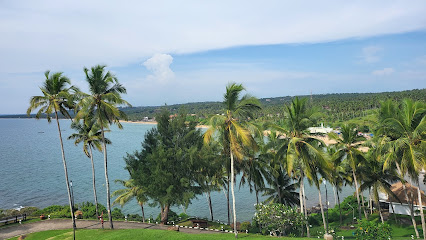
Vembanad, Kumarakom Lake Resort
Discover the serene beauty and culinary delights of Vembanad at Kumarakom Lake Resort, a perfect retreat for relaxation and gourmet seafood.
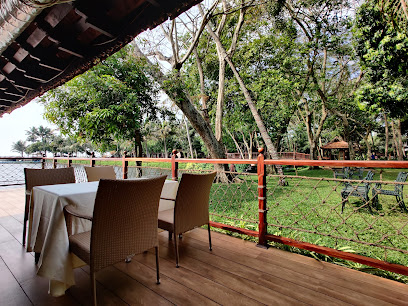
Golf View Bar
Experience the perfect blend of scenic views and vibrant atmosphere at Golf View Bar in Nedumbassery, Kerala, where relaxation meets enjoyment.
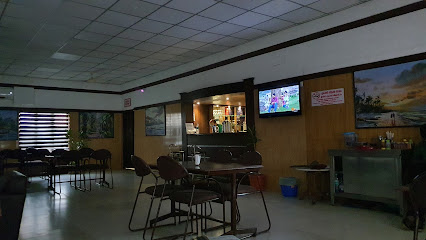
Half Moon Lounge Bar
Discover the vibrant taste of Kochi at Half Moon Lounge Bar, a perfect blend of delicious grills and refreshing drinks.
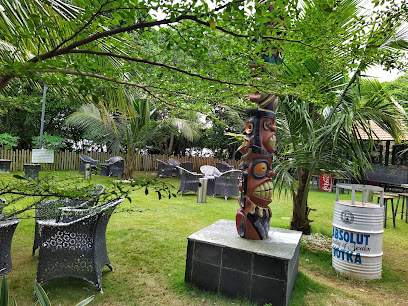
Pirates Island
Discover Pirates Island in Kottayam, Kerala - a vibrant bar nestled in tropical backwaters, perfect for relaxing evenings and refreshing drinks.
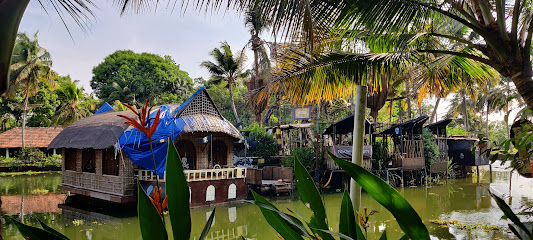
Mattancherry Bar
Experience the exquisite ambiance and local flavors at Mattancherry Bar, your perfect retreat in Kochi's Taj Malabar Resort & Spa.
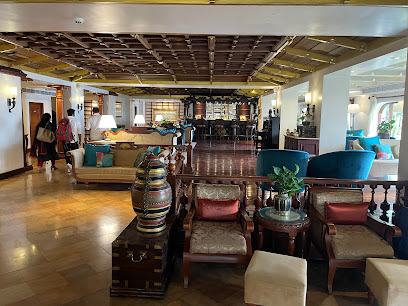
Lounge Bar - Firefly
Discover the vibrant nightlife at Lounge Bar - Firefly in Nedumbassery, where delicious drinks meet a lively atmosphere for unforgettable evenings.
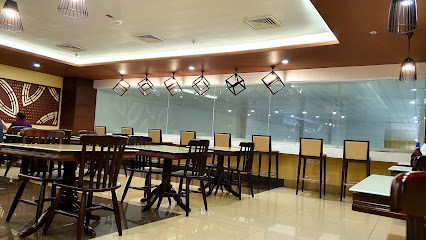
Pearlspot Restaurant
Discover the authentic taste of Kerala at Pearlspot Restaurant, where family-friendly dining meets breathtaking backwater views and traditional culinary delights.
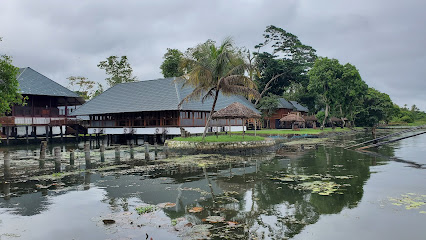
Local Phrases about Kerala Backwaters
-
- Helloനമസ്കാരം
[Namaskaram] - Goodbyeവിട്ടു പോ
[Vittu po] - Yesഅതെ
[Athe] - Noഇല്ല
[Illa] - Please/You're welcomeദയവായി
[Dayavayi] - Thank youനന്ദി
[Nandi] - Excuse me/Sorryക്ഷമിക്കണം
[Kshamikkam] - How are you?സുഖമാണോ?
[Sukhamaano?] - Fine. And you?സുഖമാണ്. നീ?
[Sukhamaanu. Nee?] - Do you speak English?നീ ഇംഗ്ലീഷ് സംസാരിക്കുക?
[Nee English samsaarikkuka?] - I don't understandഞാൻ മനസ്സ് പിടിച്ചില്ല
[Naan manass pidichilla]
- Helloനമസ്കാരം
-
- I'd like to see the menu, pleaseദയവായി മെനു കാണാമോ
[Dayavayi menu kaanamo] - I don't eat meatഞാൻ മാംസം കഴിയില്ല
[Naan maamsam kazhiyilla] - Cheers!ചീര്സ്!
[Cheers!] - I would like to pay, pleaseദയവായി പേയ് ചെയ്യാമോ
[Dayavayi pay cheyyamo]
- I'd like to see the menu, pleaseദയവായി മെനു കാണാമോ
-
- Help!സഹായം!
[Sahaayam!] - Go away!പോയി പോ
[Poyi po] - Call the Police!പോലീസ് വിളിക്കൂ!
[Police vilikku!] - Call a doctor!ഡോക്ടര് വിളിക്കൂ!
[Doctor vilikku!] - I'm lostഞാൻ താഴ്ന്നിരിക്കുന്നു
[Naan thaazhnnirikkunnu] - I'm illഞാൻ രോഗിയാണ്
[Naan rogiyaanu]
- Help!സഹായം!
-
- I'd like to buy...ഞാൻ ... വാങ്ങാനായില്ല
[Naan ... vaanganaayilla] - I'm just lookingഞാൻ കാണുന്നതാണ്
[Naan kaanunnathaanu] - How much is it?അത് എത്ര?
[Athu ethra?] - That's too expensiveഅത് വളരെ വല്യ
[Athu valare valya] - Can you lower the price?വില കുറയ്ക്കാമോ?
[Vila kuraykaamo?]
- I'd like to buy...ഞാൻ ... വാങ്ങാനായില്ല
-
- What time is it?എന്താണ് സമയം?
[Entaanu samayam?] - It's one o'clockഒന്ന് മണിക്കൂര്
[Onnu manikkoor] - Half past (10)(10) ന് അര്ധം
[(10) nu ardham] - Morningരാവിലെ
[Raavile] - Afternoonഉച്ചയ്ക്ക്
[Uchchaykku] - Eveningവീക്ഷണം
[Veekshanam] - Yesterdayഇന്നലെ
[Innale] - Todayഇന്ന്
[Innu] - Tomorrowനാളെ
[Naale] - 1ഒന്ന്
[Onnu] - 2രണ്ട്
[Randu] - 3മൂന്ന്
[Moonnu] - 4നാല്
[Naalu] - 5അഞ്ച്
[Anchu] - 6ആറ്
[Aaru] - 7ഏഴ്
[Ezhu] - 8എട്ട്
[Ettu] - 9ഒമ്പത്
[Ombathu] - 10പത്ത്
[Pathu]
- What time is it?എന്താണ് സമയം?
-
- Where's a/the...?... എവിടെ?
[... evide?] - What's the address?വിലക്ക് എന്താണ്?
[Vilakku enthaanu?] - Can you show me (on the map)?ഞാൻ കാണിക്കാമോ (മാപ്പിൽ)?
[Naan kaanikkamo (maapil)?] - When's the next (bus)?അടുത്ത ബസ് എപ്പോഴാണ്?
[Adutha bus eppozhaanu?] - A ticket (to ....)ഒരു ടിക്കറ്റ് (.... വരെ)
[Oru ticket (.... vare)]
- Where's a/the...?... എവിടെ?
History of Kerala Backwaters
-
The Kerala Backwaters are a network of interconnected canals, rivers, lakes, and inlets, lying parallel to the Arabian Sea coast of Kerala state in southern India. Formed by the action of waves and shore currents creating low barrier islands across the mouths of rivers flowing down from the Western Ghats, these backwaters have a unique ecosystem and are a natural marvel.
-
The Kerala Backwaters have been part of the ancient trade routes dating back to at least 3000 BCE. They served as major waterways for the spice trade, connecting the hinterlands to the ports on the Arabian Sea. Traders from as far as Mesopotamia, Egypt, Greece, and Rome frequented these waters to procure spices, especially black pepper, dubbed 'black gold'.
-
According to local legend, Cheraman Perumal, a Chera king, is believed to have converted to Islam and traveled to Mecca. He reportedly sent back a letter granting permission to build the first mosque in India, the Cheraman Juma Masjid in Kodungallur, near the backwaters. This event marks the early spread of Islam in the region.
-
In the 16th and 17th centuries, the Portuguese and later the Dutch established their influence in the Kerala region. The Portuguese built forts and trading posts, while the Dutch engaged in battles with local rulers. These European powers left an indelible mark on the culture and architecture of the Kerala Backwaters.
-
By the late 18th century, the British East India Company had established control over much of Kerala, including the backwaters. The British improved the waterways, constructing new canals and enhancing existing ones to facilitate the transport of goods such as spices, tea, and rubber. Their influence also led to the establishment of plantations and the modernization of local agriculture.
-
Houseboats, or 'Kettuvallams', have been an integral part of the Kerala Backwaters. Originally designed for the transport of rice and spices, these traditional boats have now become a symbol of Kerala's tourism. The construction of these boats, which involves tying wooden planks together with coir ropes and coating them with a black resin made from boiled cashew kernels, is an art passed down through generations.
-
The Kerala Backwaters are not just a natural wonder but also a cultural hotspot. The region is known for its traditional art forms such as Kathakali and Mohiniyattam, as well as its festivals like Onam, which is celebrated with boat races (Vallam Kali), elaborate feasts, and intricate floral arrangements. The backwaters also play a crucial role in the local folklore and legends.
-
In recent decades, the Kerala Backwaters have emerged as a top tourist destination, drawing visitors from around the world. The serene waters, lush greenery, and the unique experience of staying on a houseboat have made it a must-visit spot. Efforts have been made to promote eco-tourism and preserve the delicate ecosystem, ensuring that the backwaters retain their charm for future generations.
Kerala Backwaters Essentials
-
The Kerala Backwaters are located in the southern part of India, in the state of Kerala. The nearest international airport is Cochin International Airport (COK) in Kochi, which is well-connected to major cities around the world. From the airport, you can hire a taxi or use a pre-paid taxi service to reach various entry points to the backwaters, such as Alleppey (Alappuzha), Kumarakom, or Kollam. Alternatively, you can take a train from major Indian cities to Alleppey or Kottayam, which are key gateways to the backwaters. Buses operated by the Kerala State Road Transport Corporation (KSRTC) also connect major cities to these destinations.
-
Once in the Kerala Backwaters, houseboats (kettuvallams) are the most popular mode of transport for exploring the network of canals, lakes, and lagoons. These houseboats range from budget to luxury options, offering varying levels of comfort and amenities. For shorter trips, you can hire small boats or canoes, often operated by local villagers. Auto-rickshaws and taxis are available for land transportation within towns. Public buses are also an option for budget travelers, providing connectivity between towns and tourist spots.
-
The official currency in India is the Indian Rupee (INR). Credit and debit cards are widely accepted in hotels, restaurants, and larger shops in tourist areas, but it's advisable to carry cash for smaller establishments and remote areas. ATMs are available in major towns like Alleppey and Kumarakom. Currency exchange services can be found at the airport, banks, and some hotels. It's recommended to exchange a portion of your currency before arriving in the backwaters, especially if you plan to spend time in smaller villages.
-
The Kerala Backwaters are generally safe for tourists. However, it is always wise to take standard precautions. Avoid walking alone at night in unfamiliar areas, and keep your belongings secure, especially in crowded places like markets or bus stations. There are no specific high-crime areas targeting tourists, but staying vigilant and aware of your surroundings is always advisable. Use reputable services for houseboats and local transportation to ensure safety and reliability.
-
In case of emergency, dial 112 for immediate assistance, which connects you to police, fire, and medical services. Major towns like Alleppey and Kumarakom have hospitals and clinics for medical emergencies. It is highly recommended to have travel insurance that covers medical treatment and emergencies. For minor health issues, pharmacies are available in most towns where you can purchase over-the-counter medications. Always keep a copy of your passport, visa, and travel insurance details handy.
-
Fashion: Do dress modestly, especially in rural areas and religious sites. Lightweight cotton clothing is ideal due to the warm and humid climate. Religion: Do respect local customs and traditions. Remove your shoes when entering temples and cover your head if required. Public Transport: Do be courteous and patient while using public transport. Don’t litter and avoid loud conversations. Greetings: Do greet people with a smile or a slight nod. In rural areas, a traditional 'Namaste' with folded hands is appreciated. Eating & Drinking: Do try local delicacies, especially seafood and traditional Kerala dishes like appam and fish curry. Don’t drink tap water; always opt for bottled water.
-
To experience Kerala Backwaters like a local, consider staying in a homestay, where you can enjoy traditional Kerala hospitality and home-cooked meals. Visit local markets to buy fresh produce, spices, and souvenirs. Engage with locals, who are generally friendly and eager to share stories about the region's history and culture. Don't miss the chance to attend a Kathakali performance or a traditional boat race if you visit during the Onam festival. For a unique experience, try toddy, a local palm wine, from a licensed shop.
Trending Landmarks in Kerala Backwaters
-
Illikkal Kallu
-
Aspinwall House
-
Kumarakom Bird Sanctuary
-
Alappuzha Light House
-
Kochi Beach
-
Marmala Waterfalls
-
Kadamakudy Lake View Point
-
Poovar Backwater Cruise
-
Kochareekkal Caves
-
Nadukani Pavilion
-
Kochi Backwaters
-
Alleppey Backwaters
-
Kadambrayar Tourism
-
Kadamakkudy Islands View Point
-
Nadukani View Point, Kayyoor
Nearby Cities to Kerala Backwaters
-
Things To Do in Trivandrum
-
Things To Do in Coimbatore
-
Things To Do in Madurai
-
Things To Do in Kozhikode
-
Things To Do in Kanyakumari
-
Things To Do in Mysore
-
Things To Do in Jaffna
-
Things To Do in Bengaluru
-
Things To Do in Puducherry
-
Things To Do in Pondicherry
-
Things To Do in Anuradhapura
-
Things To Do in Negombo
-
Things To Do in Colombo
-
Things To Do in Sigiriya
-
Things To Do in Bentota











